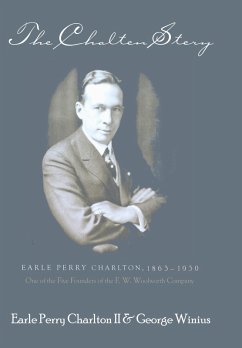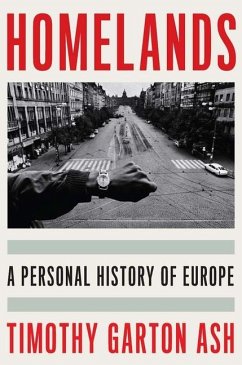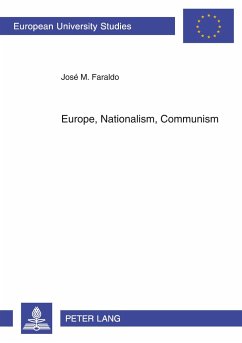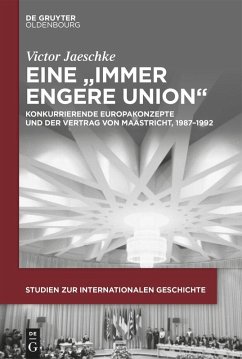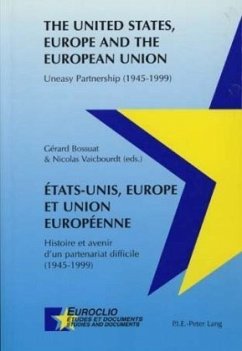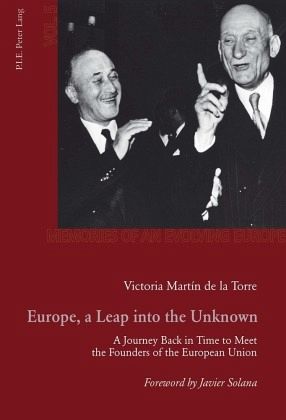
Europe, a Leap into the Unknown
A Journey Back in Time to Meet the Founders of the European Union
Versandkostenfrei!
Versandfertig in 6-10 Tagen
38,70 €
inkl. MwSt.

PAYBACK Punkte
0 °P sammeln!
This non-fiction story recreates the decade that gave birth to the European Communities (1948-1957). Written in a journalistic style, it shows the origins of the EU project through the eyes of the protagonists. Jean Monnet, Robert Schuman, Konrad Adenauer, Alcide De Gasperi and Paul-Henri Spaak - the so-called "Fathers of Europe" - are brought back to life, so that the reader can learn about their personal backgrounds and beliefs, and also see them in action. Their discussions are key to understanding how and why decisions which today affect the lives of 500 million Europeans were taken at the...
This non-fiction story recreates the decade that gave birth to the European Communities (1948-1957). Written in a journalistic style, it shows the origins of the EU project through the eyes of the protagonists. Jean Monnet, Robert Schuman, Konrad Adenauer, Alcide De Gasperi and Paul-Henri Spaak - the so-called "Fathers of Europe" - are brought back to life, so that the reader can learn about their personal backgrounds and beliefs, and also see them in action. Their discussions are key to understanding how and why decisions which today affect the lives of 500 million Europeans were taken at the time. All facts and conversations have been taken from the memoirs of the protagonists, newspaper articles, speeches, EU historical archives and interviews with people who knew them.





